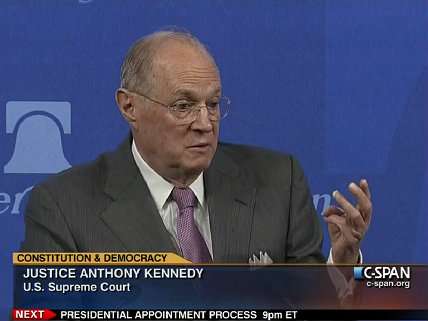Today at SCOTUS: Abortion Regulations on Trial
The Supreme Court hears oral argument in Texas abortion case.
Today the U.S. Supreme Court will hear oral arguments in a case asking whether the state of Texas exceeded its lawful authority by imposing a sweeping regulatory crackdown on abortion clinics and doctors.

The case of Whole Woman's Health v. Hellerstedt centers on the legality of two provisions from a 2013 Texas statute known as H.B. 2. The first provision requires all abortion clinics to meet the same standards required of ambulatory surgical centers. The second provision requires all doctors who perform abortions to have admitting privileges at nearby hospitals. If both provisions go into full effect, at least 75 percent of the state's abortion providers are expected to close.
The dispute in the case boils down to this. Texas claims to be acting in the name of health and safety and maintains that the Supreme Court must therefore afford state lawmakers wide leeway to regulate. Whole Woman's Health maintains that H.B. 2 is "the epitome of unnecessary health regulations" and is in fact a mere pretext designed to harass abortion providers and ultimately drive them out of business.
In other words, this is not a case about whether the right to abortion should be upheld or struck down. It is a case about whether the state government has exceeded the proper scope of its legitimate regulatory powers.
The legal precedent most likely to inform the Supreme Court's ultimate decision is a 1992 ruling known as Planned Parenthood of Southeast Pennsylvania v. Casey. In that case the Court upheld most of the provisions from a challenged Pennsylvania abortion statute, yet voided one provision for placing an "undue burden" in the way of women seeking abortions. "A finding of an undue burden," the Court explained in Casey, "is a shorthand for the conclusion that a state regulation has the purpose or effect of placing a substantial obstacle in the path of a woman seeking an abortion of a nonviable fetus." For example, "unnecessary health regulations that have the purpose or effect of presenting a substantial obstacle to a woman seeking an abortion impose an undue burden on the right."
In most Supreme Court cases dealing with the issue of health and safety regulations, the legal left can be expected to favor broad judicial deference towards government action. But that's not the case here. Indeed, the same left-wing legal pundits who normally say that the Court has no business striking down ostensible health and safety laws suddenly find themselves in the unusual position of favoring aggressive judicial action against Texas' "burdensome and expensive restrictions" and "sham health laws." By the same token, conservative legal activists have taken up the mantle of government regulation and are now accusing the other side of seeking "to use the Due Process Clause as a deregulatory tool."
All eyes in the courtroom today will undoubtedly be trained on Justice Anthony Kennedy, who may well hold the deciding vote. Over the years, Kennedy has managed to alternately please and outrage both sides of the abortion debate. In 1992, for example, Kennedy jointly co-authored the majority opinion in Casey, thereby placing the "undue burden" test in the way of all future legislative attempts to limit abortion. In 2007, however, Kennedy authored the majority opinion in Gonzales v. Carhart, which upheld the federal Partial-Birth Abortion Act signed by President George W. Bush. Needless to say, both sides today will do everything possible in the hopes of swinging Justice Kennedy in their favor.
A decision in Whole Woman's Health v. Hellerstedt is expected by late June.


Show Comments (48)